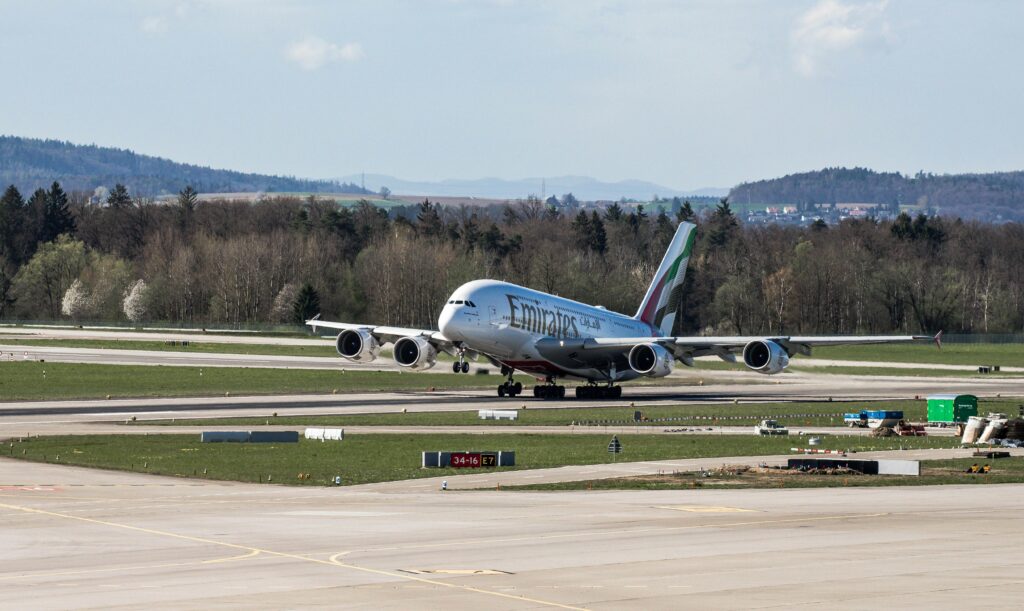Airbus has put the brakes on its ambitious plan to launch hydrogen-powered aircraft, citing a shortage of green hydrogen. The aerospace giant had aimed to introduce a commercially viable hydrogen aircraft by 2035. However, the company now admits that meeting this target is no longer possible.
The project’s delay raises concerns about the aviation industry’s ability to transition to clean energy. While Airbus still sees hydrogen as a key solution for reducing carbon emissions, significant hurdles remain. Infrastructure gaps, production challenges, and slow regulatory progress are stalling advancements.
Technology Lagging Behind Expectations
The Force Ouvrière union, representing Airbus employees, revealed that the company informed staff last week that hydrogen aviation tech is five to ten years behind schedule. This admission comes as a major blow to the industry’s efforts to achieve net-zero emissions by 2050.
Airbus has long promoted hydrogen as the future of sustainable aviation. However, creating a hydrogen-powered fleet requires more than just technological breakthroughs. The industry lacks the necessary ecosystem, including large-scale production, efficient distribution, and regulatory approval. Without these, transitioning to hydrogen remains a distant goal.
Airbus Reduces Hydrogen Research Investment
Airbus is now cutting back on its hydrogen research. The company announced a 25% reduction in its budget for hydrogen-powered aircraft development. This move reflects the growing realization that hydrogen-based solutions are progressing slower than expected.
Testing has also been postponed, meaning Airbus will take longer to validate key technologies. While the company remains committed to hydrogen, it is shifting focus to more immediate alternatives, such as sustainable aviation fuel (SAF) and improved fuel efficiency in traditional aircraft.
Hydrogen Faces Major Challenges in Aviation
Hydrogen aviation technology faces several obstacles:
- Production Issues: Green hydrogen production is not scaling up fast enough to meet demand. The process requires renewable energy sources like wind and solar, which are still underdeveloped in many regions.
- High Costs: Producing and storing hydrogen is expensive. Without major cost reductions, airlines may struggle to adopt the technology.
- Infrastructure Limitations: Airports lack the necessary hydrogen refueling stations. Establishing a global hydrogen network would require massive investments.
- Regulatory Uncertainty: Governments and aviation authorities have yet to finalize hydrogen safety and certification standards.
Given these challenges, many experts doubt that hydrogen will become a major player in aviation anytime soon.
Boeing’s Reluctance to Embrace Hydrogen
Airbus’ main rival, Boeing, has taken a more cautious approach to hydrogen. While Airbus has been vocal about its hydrogen ambitions, Boeing has focused on sustainable aviation fuels (SAFs) instead. SAFs can be used in existing aircraft engines, making them a more practical short-term solution.
This strategic difference highlights the uncertainty surrounding hydrogen’s role in aviation. With Airbus delaying its hydrogen plans and Boeing prioritizing other options, the industry’s clean energy transition remains unclear.
IATA Predicts a Minor Role for Hydrogen in Aviation
The International Air Transport Association (IATA) has projected that hydrogen will play only a limited role in reducing aviation emissions by 2050. While the technology has potential, current advancements are not happening fast enough.
Airbus had initially planned to introduce a small hydrogen-powered aircraft capable of carrying about 100 passengers. In comparison, standard commercial planes like the Airbus A320neo and Boeing 737 can carry around 180 passengers and fly longer distances. Given these limitations, large-scale hydrogen-powered flights appear to be years, if not decades, away.
The Future of Green Aviation
Despite the setback, Airbus insists that hydrogen remains a part of its long-term strategy. The company continues to work with energy firms and governments to develop a hydrogen ecosystem. However, experts say significant breakthroughs are needed before hydrogen aviation becomes practical.
For now, the aviation industry is focusing on other solutions, such as SAFs, electric propulsion for short-haul flights, and improved fuel efficiency. These technologies offer more immediate benefits while hydrogen development continues.
Airbus’ decision to delay hydrogen aircraft highlights the difficulties in transitioning to clean aviation. While hydrogen holds promise, the lack of infrastructure, high costs, and slow technological progress are major barriers.
The aviation industry is still committed to reducing emissions, but the path forward remains uncertain. With hydrogen facing delays, alternative solutions will likely take center stage in the coming years.
For more updates on this developing story, visit New York Mirror.


